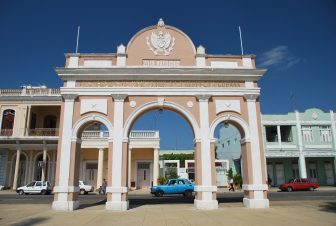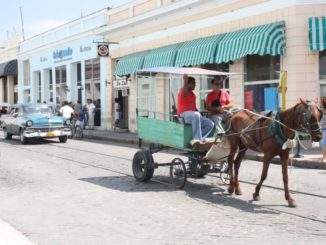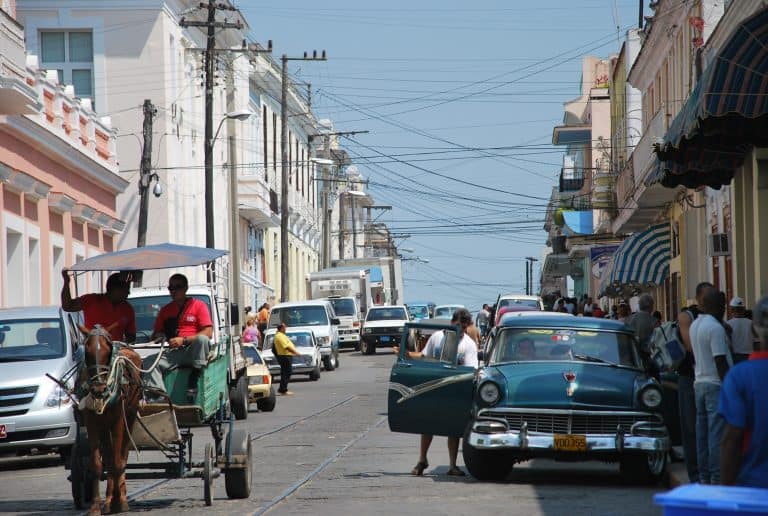

[March 2010] On the third day in Trinidad, Cuba, we went down to the hotel lobby at 9 am and boarded the Miguel’s taxi arranged by travel agent, Carlos.
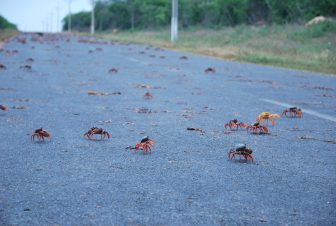
Miguel was an English-speaking driver and guide who would take us to Cienfuegos, about 83 kilometers northwest of Trinidad.
The price of this tour was 120 pesos (about 120 euro at that time).
Not so long after we started, there was something we got really surprised.
It’s a myriad of crabs that were run over by cars and died to cross the road.
They move from land to the sea for spawning, and there is this road on their way.
Carcasses of crabs stuck to the ground so that the entire road looked slightly orange.
I felt so sorry.

According to Miguel, at the peak of the season, cars slip because of them.
These crabs were quite large and fine, but they were not edible.
It was impressive that there were many vultures with red heads perching at the surrounding trees, waiting to eat dead crabs.
Now, we arrived in Cienfuegos, which was a pastel-colored town like sugar confectionery, historically built by French immigrants.
At least it looked richer than Trinidad.
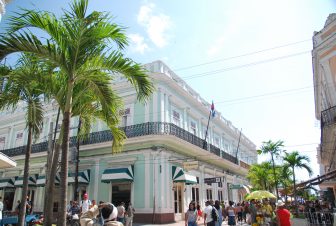
For example, flat-screen TVs were sold for around 700 pesos.
We’ve learned from Miguel that people’s monthly salary was around 12 pesos, so it would be very difficult to buy this.
We learned a lot about Cuba from him.
One was that Cuba imported crude oil very cheaply from Venezuela and refined it to export petrol at a high price to earn foreign currency.
However, petrol for the domestic market is also expensive, and a month’s salary could not fill the car.
But before talking about petrol, individuals could not buy a car.
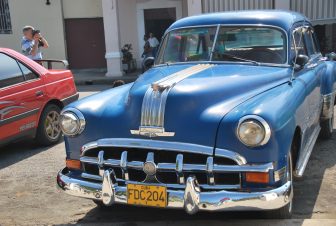
The new cars running are owned by the government, including taxis.
However, antiques cars owned since before the 1959 Cuban Revolution can be used by individuals without being confiscated.
That was why we saw quite a few classic cars running in the streets.
Former Soviet cars such as Lada and Moskvitch were once given to workers as a reward in the 1980s, but the system was soon abolished because it was against the spirit of equality.
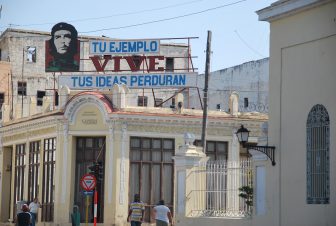
It is illegal to sell a car, so it will be the property of the family for generations.
By the way, the general public is not supposed to be able to use the Internet.
However, they are Latinos, and everyone seems to have some relatives and acquaintances who are government officials and they use their emails.
In addition to petrol, Cuba’s main “exports” are doctors.
It seems that they are quite advanced in medicine.
However, it was tourism that saved Cuba after the collapse of socialist nations in the 1990s.
Miguel, who gave us these information, is 41 years old.
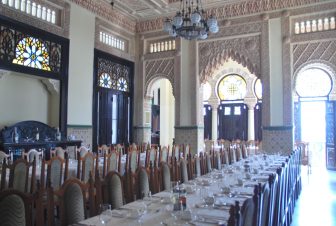
He loves going fishing with his 11-year-old daughter.
He said he was a mixed race of Spanish and Cuban locals.
There are really many mixed races in this country, but they seem to live in a perfect mix without discrimination.
We talked with Miguel quite a lot at a snack shop near the Palacio de Valle, which reminded me of Alhambra in Spain.
He said he had friends in Japan and he could speak a little Japanese.
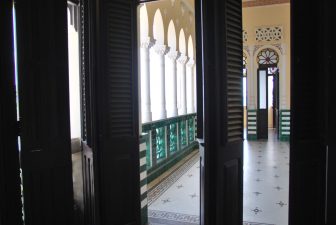
He was interested in languages.
What was interesting was that Jamaican Reggae from next door neighbour of Cuba, didn’t make any sense to him and said he hated it.
Certainly, it’s very different from a Latin rhythm.
At the mango field along the way back, he said that all the avocado trees that once existed were cut for unknown reasons.
Miguel complained that unreasonable things often happen in the name of “equality” in this country.
Who judges equality from what standpoint?
I saw that the slogan “socialism or death” was put up in a place like a bus stop, but unfortunately, I thought that such an artificial society seemed unreasonable.
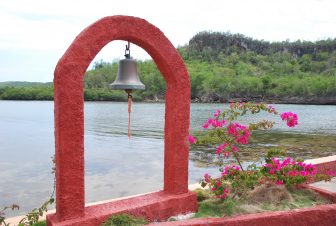
The person who imposes something that goes against human desires is just a person, too.
Perhaps because Miguel felt a little friendly towards us, he also stopped by a diving base called Guajimico for us, which was not in our schedule.

